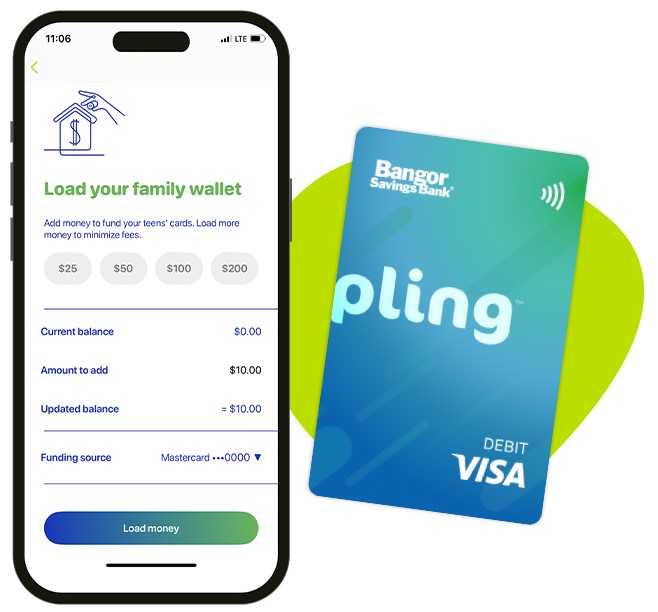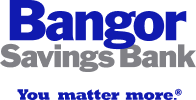End of Year Tax Forms are now available through Bangor Online and the Bangor Mobile app for eStatement subscribers.
Learn more about electronic tax forms.
Published on : 10/16/2024

In today’s world, financial decisions are part of every stage of life, and many teens are eager to take responsibility for their own money management while seeking guidance on how to achieve long-term financial success.
Although money management is increasingly important, only 57% of U.S. adults are financially literate, according to MarketWatch. With this in mind and with the right tools and early financial education, teens can gain the knowledge they need to create healthy financial habits to carry with them throughout their lives.
Teachers and students alike agree on the importance of financial wellness. A significant 89% of K-12 teachers believe that students should take a financial education course or pass a test for high school graduation. Similarly, 85% of U.S. high school students express interest in learning about personal finance in school. Although 25 states currently offer a financial literacy course, only eight have fully implemented the class, with 17 still in progress. This highlights the increasing responsibility of families to provide financial education at home.
That’s where pling™ comes in—Bangor Savings Bank’s new innovative teen card that gives young adults real-world experience managing money and simplifying finances with parental guidance, setting them up for financial independence.
Why Financial Well-Being Is Essential for Teens' Futures
Financial well-being goes beyond managing money today—starting financial education early helps teens build lifelong habits that lead to smarter spending, saving, and investing, setting them up for reduced debt and increased savings in adulthood.
Mellody Hobson, co-CEO of Ariel Investments, and a prominent advocate for financial education, stresses the importance of starting early: “I want kids to understand the importance of savings and investing. It’s crucial that people understand the importance of financial literacy because it is actually life-saving.”
Ace and Cooper Flagg, rising basketball stars and in partnership with Bangor Savings Bank, emphasize the value of early financial education. “Learning about money is like learning a new play. Once you get it, it changes how you approach the game—and life,” Ace explains. Cooper adds, “The earlier you start, the more time you have to practice making smart decisions, on and off the court.” Their partnership with the Bank and pling™ highlights the importance of financial literacy for our youth, demonstrating how mastering financial skills can be as crucial as honing athletic abilities. Their message underscores how financial skills, like athletic skills, require practice and discipline to ensure good habits over time.
Proven Strategies for Teaching Teens Money Management
Building a strong financial foundation begins with education and intentional guidance from parents. While many teens may understand the basics of earning and spending, the real opportunity lies in developing the skills needed to manage money responsibly and independently. Parents play a crucial role in setting the stage for long-term financial success by introducing and simplifying important concepts and creating real-world opportunities for practice.
Here are a few practical ways to help your teen take their first steps toward financial independence:
- Introduce Basic Concepts Early: Start with the fundamentals of saving, spending, and budgeting. Help teens understand where their money goes and why it’s important to manage it wisely.
- Make Learning Interactive: Try budgeting apps, games, or simulations that replicate real-world financial decisions. These approaches can make financial education engaging and relatable for teens, helping them see the immediate impact of their choices.
- Encourage Goal Setting: Help your teen set financial goals, whether it’s saving for a gadget or higher education. Setting and tracking goals reinforces the importance of saving over a period of time, teaching them the value of planning and patience.
- Teach Through Real-Life Scenarios: Involve your teen in planning the family grocery budget or saving for a vacation. These everyday experiences turn abstract financial concepts into relatable, practical lessons.
By using these strategies, parents can help teens build healthy and lasting habits regarding financial education. These approaches not only teach teens how to manage money but also instill a sense of responsibility and independence that will benefit them throughout their financial journey.
Introducing pling: A Resource for Family Financial Well-Being
pling is more than just a teen card—it’s a tool designed to teach financial responsibility in a practical, hands-on way. With features like budgeting tools, spending categories, and parental controls, pling helps teens manage their money while giving parents peace of mind. Key features include:
- Budgeting Tools and Spending Categories: Teens can categorize their spending and manage their budgets, learning how to prioritize needs versus wants. This feature helps them understand the importance of budgeting and making informed financial decisions.
- Parental Controls: Parents can set spending limits and monitor their teen’s transactions in real-time. This ensures responsible spending while allowing teens some freedom to make their own financial choices within safe boundaries
- Secure Transactions: With no overdraft capability, teens can only spend what’s available on their cards, minimizing financial missteps.
As Mikayla Smith, Vice President and Lead Product Manager at Bangor Savings Bank, explains: “Financial well-being is a journey, and pling is here to help families start that journey together through education. It’s not just about managing money—it’s about creating habits that will last a lifetime.”
Empowering the Next Generation with Financial Confidence
Providing teens with financial education early empowers them to make informed decisions and ensures long-term security. With tools like pling and support from their families, teens can gain valuable real-world experience managing money, setting them up for a lifetime of financial well-being.
Download the pling app today in the Apple App Store or on Google Play and give your teen the tools they need to start their financial journey. By working together, parents or guardians, and teens can build confidence and financial independence as they learn to manage their money wisely. Ready to get started? Visit Bangor Savings Bank’s pling page for more information and take the first step towards empowering your teen with financial wellness. It’s as easy as pling.
Author: Kendra Wheeler, Financial Wellness Program Manager, Bangor Savings Bank
